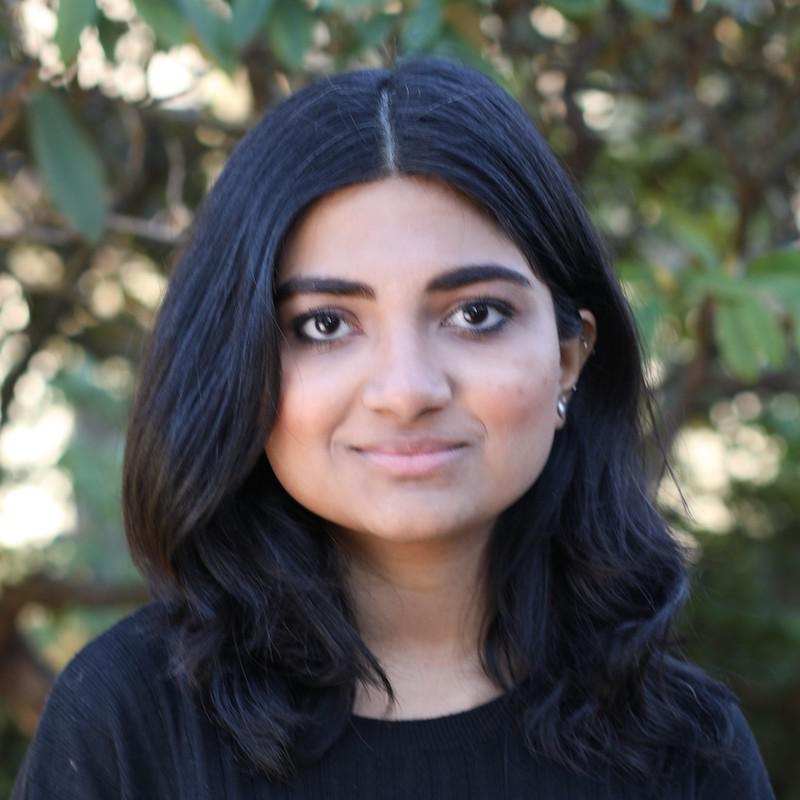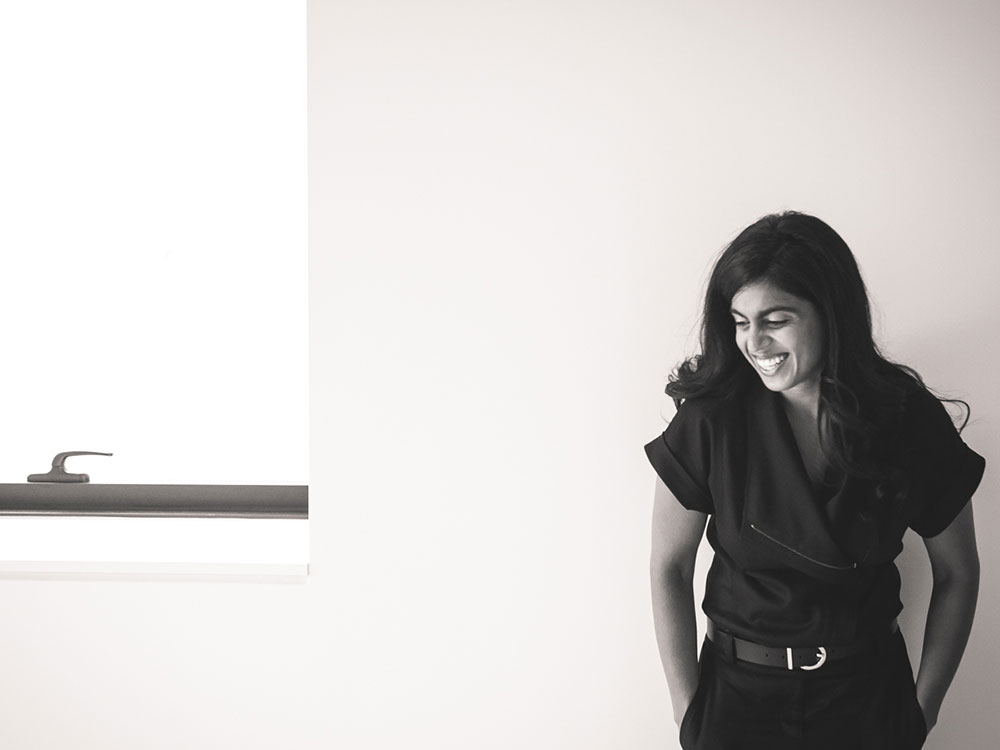Equating abysmal American events like the U.S. Supreme Court’s overturning of Roe v. Wade with “Sharia law” or living under an “extremist” Muslim regime has become a common byproduct of western Islamophobia.
Misrepresentations of Muslims are not surprising though. We’ve often been scapegoated to outsource the internal debacles of America, and the West at large.
This is why I found Dr. Ayesha Chaudhry’s memoir The Colour of God so compelling: the book pushes back against distorted tropes and invites readers to reflect on the biases they hold about Muslims.
Chaudhry chronicles in detail her parents’ struggle to create a life in Canada in the ’70s and how, after bitter experiences of trying to assimilate and still facing racism, they decided to join a more conservative Islamic group.
Chaudhry’s parents saw the virtue in being persecuted for their faith and for donning religious symbols — rather than being persecuted for their skin colour, which they had no control over. As part of this, Chaudhry was pressured by her family to start wearing the niqab in high school.
Chaudhry is cognizant of how this narrative fits perfectly into the Orientalist script. In the book, she describes her niqab as “a mirror of sorts.”
“People couldn’t see my face, but it revealed truths about themselves, like the limits of their tolerance, their willingness to be open, accepting, respectful of values different from their own,” she writes.
Chaudhry now teaches gender and Islamic studies at the University of British Columbia and her research focuses on Islamic law and theology. “I ask you, dear reader, to please avoid simplistic, exotic, dehumanized conclusions from this story,” she writes in an earlier part of the book. “Try to find yourself in it. Look harder. You are here.”
Society often thinks of certain groups or people as ideas and concepts, she notes, be it women as pollutants or immigrants as diluting whatever Canadian identity is. And “when that happens, you can justify all kinds of monstrosities.”
Chaudhry’s writing, which she describes as a “work of embodied theory,” is raw — filled with pain and grief, and love and compassion. Set against the backdrop of faith, family and feminism, Chaudhry dissects the various forces which have manifested in her life, from patriarchy to white supremacy to growing up in a fundamentalist Muslim household.
The Colour of God’s paperback edition comes out on July 28 and the book has been shortlisted for the 2022 William Saroyan International Prize for Writing.
Chaudhry spoke to me about who she wrote her new book for, who has the right to belong to a place, and why stories are a form of survival. This interview has been edited for length and clarity.
The Tyee: Who is The Colour of God for? Did you write it with a specific reader in mind?
Dr. Ayesha Chaudhry: I was thinking of a 19-year-old version of myself. I think we often do write to versions of ourselves. It’s impossible not to. I was just more intentional about it. I picked her because she was someone who was really looking for a book like this, but who might have hated this book. In writing to her I kept wondering about what she is going to hate, what she is going to love and what she is going to be drawn to.
It felt beautiful to connect with that version because I’ve grown so much from who I was. But she’s still inside of me and it’s a way to bring her along.
In doing so, I’m bringing a lot of other people along as well, who might be represented by her. I tried to think, if a Muslim was reading it, what would they think, if a South Asian person was reading it, what are they thinking, and centering concerns that might come up from those positionalities. Of course, we don’t all think the same thing, but you can have a sense of what questions or concerns might arise, and I tried to address those as much as possible.
Having Arabic and Urdu script inside the text was a really important way of making that place feel like a home and making a choice about who would feel more at home by seeing that.
Land and place is a central theme in your book. You re-examine the idea of home and who gets to belong, from the violence of India-Pakistan’s partition to settler colonialism.
Something I wanted to think [about] in the book was: What kind of violence is made necessary by our claims to belonging and our need for belonging?
One of the things that marks the colonial and postcolonial period is this profound alienation from land, having been separated from our land. I talk about the diaspora in the book: where my parents first moved from India to Pakistan, then from Pakistan to Canada, trying to make an identity first in Pakistan as Pakistanis, and then in Canada as Canadians, but on stolen land.
In one of the chapters, I talk about the house that my grandfather found in Pakistan and lived in — it was someone else’s house — and then there were inheritance fights over that house — the house that hardly even belongs in the family to begin with. In a way, that’s a metaphor, for all of our feelings of belonging, and it includes us being in Canada on land that is stolen, that is not ours.
As people of colour, I wonder if we feel like we don’t have to engage in those conversations as deeply because we feel displaced already, because colonialism did displace us from our homelands. But I feel like we have a tremendous moral obligation here.
Yes, we were unsettled and displaced, and our lands were stolen from us. And we were sent to other places, because of white ideas about who should be where, but now we are in this other place, this stolen land, and we are part of a nation-state that is based on that theft, and that we benefit from.
I work at UBC and literally earn my livelihood on land that is stolen. And so what are our responsibilities when we do that? What do we do beyond those land acknowledgments? How do we think about this in a way that has moral consequences for us?
I also want to challenge the idea that everybody deserves to belong to where they are. We take this idea for granted and the nation-state really makes us think: if you’re Canadian, you should feel Canadian. These discourses of citizenship make it sound like everybody has a right to belong to where they are. And I’m not sure that’s true.
In one section of the book, you talk about inheritance and how we humans don’t exist in vacuums and are products of our environment. Did writing about your parents change how you view them and their choices? How has it affected your relationship with them?
When you are a child, your parents are like gods. Actually, they are your gods — they feed you, they clothe you, they provide you sustenance. Then, there is a point when you grow up and they stop being gods, and that is a painful process of growth, when you come to realize that they might actually be real human beings.
As you grow older, further understanding how human they are, it can be a gift to be able to see that our parents are not perfect, but they are trying. Then, you can imagine yourself in the scenarios that they found themselves in and think about the kinds of decisions you may or may not have made. Sometimes you might have made the same decision, and sometimes you really might not have, and you can begin to understand how you are formed by your parents, but how you are different from them as well.
Getting to the point where I could write about them as real human beings, that are complicated, and made decisions based on the circumstances that they found themselves in, and the consequences we had to deal with, was transforming. It was transformative for my relationship with my parents because then I can just let them be people, and it’s really nice.
Muslims, especially Muslim women, often have to tread a fine line when telling their stories, sort of like damned if you do, and damned if you don’t. Did you fear being misperceived, by Muslims and non-Muslims, but perhaps for different reasons?
I’m writing in a context where Islamophobia is rampant and I can’t pretend like that’s not happening and writing about Muslim women is always a very politicized issue.
We [people of colour] are asked to offer up our stories, in a white supremacist context, in order to justify why we deserve being in a certain place, or why we belong. I really didn’t want to play into that and tell a bunch of stories just for the sake of telling them. I was very careful that every story I wrote, it made an argument.
The second thing was how can I tell the stories right, in order to make the argument that I wanted to make, while also limiting the information that I was sharing. I don’t tell all the details around a story. I tell the parts that I want to tell.
In the chapter “Education,” where I talk about Tanzeem [the fundamentalist cult her parents joined], there’s a point in the story where I say, “Uff. I don’t want to tell this story.” It’s such an annoying story to me in some ways because it fulfils all these stereotypes and gets too much attention. But it’s also what happened to me. And what am I supposed to do, not tell my story because it fulfils a stereotype that white people have about Muslims?
When I do tell that story, I complicate it considerably. I talk about its context, I place it in the context of colonialism. I was thinking carefully about how it is going to be construed or misperceived, but then also understanding that I’m not really responsible for the ways that people will read it, in a million ways, in ways that are completely unexpected to me.
Often the point that is brought up in the community is “This is not the right time to be having this conversation because we are under siege.” Well, there’s no right time to have these conversations. The loss of not telling our stories is tremendous. Because there are all these people who are living these lives, and if we can’t even talk about them, we are erasing these experiences. Telling our stories is one of the ways that we survive. And we can’t survive without telling these stories. ![]()
Read more: Rights + Justice, Gender + Sexuality, Media
















Tyee Commenting Guidelines
Comments that violate guidelines risk being deleted, and violations may result in a temporary or permanent user ban. Maintain the spirit of good conversation to stay in the discussion.
*Please note The Tyee is not a forum for spreading misinformation about COVID-19, denying its existence or minimizing its risk to public health.
Do:
Do not: